As the demand for sustainable and organic farming continues to rise, farmers are increasingly seeking chicken breeds that not only thrive in organic environments but also contribute to the overall sustainability of their farming operations. Sustainable farming prioritizes animal welfare, environmental stewardship, and economic viability, and the choice of chicken breeds plays a critical role in achieving these goals. Here, we explore the top 15 chicken breeds that are well-suited for sustainable farming, focusing on their adaptability, productivity, and overall contributions to a holistic farming system.
Rhode Island Red
Rhode Island Reds are renowned for their hardiness and adaptability, making them a popular choice for sustainable farms. These birds are excellent layers, producing up to 300 brown eggs annually. Their dual-purpose nature allows them to be used for both egg and meat production, contributing to the versatility of the farm.
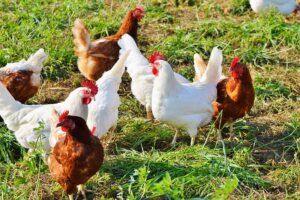
Plymouth Rock
Plymouth Rocks, particularly the Barred Rock variety, are another excellent dual-purpose breed. They are known for their friendly disposition and robust health. They lay around 200-280 large brown eggs per year and provide good-quality meat. Their foraging skills make them ideal for free-range environments, enhancing the sustainability of the farming system.
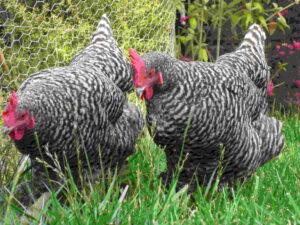
Sussex
The Sussex breed is an ancient and versatile chicken, suitable for both egg and meat production. They are prolific layers, producing up to 250 eggs per year. Sussex chickens are also known for their calm temperament and excellent foraging abilities, which contribute to pest control and soil health on the farm.

Australorp
Australorps, originating from Australia, are celebrated for their exceptional egg-laying capabilities, with some hens producing over 300 eggs per year. They are hardy birds that can withstand a variety of climates, making them an excellent choice for sustainable farming operations in diverse regions.
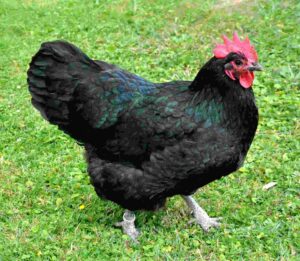
Orpington
Orpingtons are large, docile birds known for their dual-purpose qualities. They lay approximately 200-280 eggs annually and provide high-quality meat. Their calm nature and good foraging skills make them a favorite among farmers looking to maintain a balanced and sustainable flock.
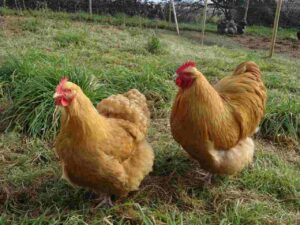
Leghorn
Leghorns are prolific egg layers, with hens capable of producing up to 300 white eggs per year. While they are not typically used for meat, their high egg production and efficient feed conversion make them an economically viable choice for organic egg farms. Their active foraging habits also contribute to pest control.
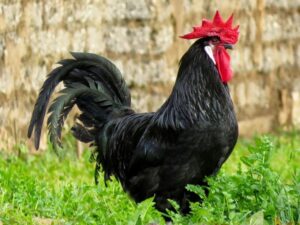
Wyandotte
Wyandottes are attractive birds with a variety of color patterns. They are good layers, producing around 200 eggs per year, and are also valued for their meat. Their hardiness and adaptability to different climates make them suitable for sustainable farming practices.
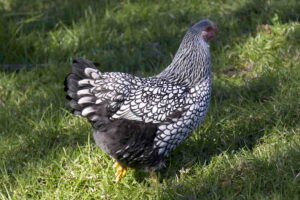
Buff Orpington
A variant of the Orpington breed, Buff Orpingtons are particularly known for their friendly and gentle nature. They are prolific layers, providing around 200-280 eggs per year, and also serve as a good source of meat. Their foraging abilities help maintain the ecological balance on the farm.

Dominique
Dominique chickens, one of the oldest American breeds, are known for their hardiness and ease of care. They are good layers, producing up to 230 brown eggs per year. Their calm temperament and excellent foraging skills make them a valuable addition to sustainable farms.
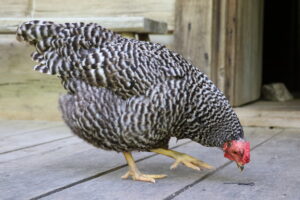
Sussex
The Light Sussex, a popular variety, is particularly noted for its excellent laying capabilities and good meat quality. They are prolific layers, producing around 250 eggs per year. Their adaptability and friendly nature make them ideal for diverse farming environments.
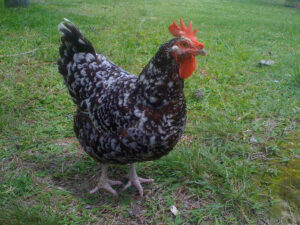
Faverolles
Faverolles are dual-purpose chickens known for their unique appearance and gentle temperament. They lay around 180-200 eggs annually and provide good-quality meat. Their foraging skills and adaptability to various climates make them suitable for sustainable farming.

Welsummer
Welsummers are known for their beautiful dark brown eggs and excellent foraging abilities. They lay around 160-200 eggs per year and are also valued for their meat. Their active nature helps control pests and improve soil health, contributing to the farm’s sustainability.
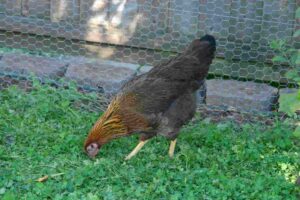
Marans
Marans, especially the Black Copper Marans, are highly regarded for their dark chocolate-colored eggs. They lay approximately 150-200 eggs annually. Their dual-purpose nature and hardy constitution make them a good fit for sustainable farms, particularly those focused on specialty egg markets.

Jersey Giant
Jersey Giants are one of the largest chicken breeds, primarily valued for their meat. They are decent layers, producing around 150-200 eggs per year. Their size and gentle nature make them an excellent choice for free-range systems, where their foraging helps control pests and improve the land.
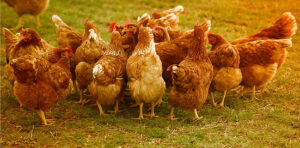
Brahma
Brahmas are large, gentle birds known for their meat quality and winter hardiness. They are moderate layers, producing around 120-150 eggs annually. Their calm disposition and ability to forage in various conditions make them suitable for sustainable farming practices.
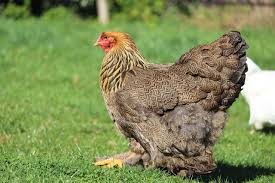
Importance of Breed Selection in Sustainable Farming
Choosing the right chicken breed is crucial for sustainable farming. The breeds listed above are known for their adaptability, productivity, and contributions to a holistic farming system. Here are some key factors to consider when selecting chicken breeds for sustainable farming:
Adaptability
Breeds that can thrive in various climates and environmental conditions are essential for sustainable farming. Hardy breeds reduce the need for intensive management and resources, making the farming operation more efficient and resilient.
Productivity
High egg production and good meat quality are important for the economic viability of a sustainable farm. Dual-purpose breeds provide flexibility, allowing farmers to adjust their production focus based on market demands.
Foraging Ability
Chickens with strong foraging instincts can contribute to pest control and soil health. They help manage insect populations and fertilize the soil naturally, reducing the need for chemical inputs.
Temperament
Calm and friendly chickens are easier to manage, especially in free-range and pasture-based systems. Good-natured birds are less likely to engage in aggressive behaviors, promoting a more harmonious flock environment.
Genetic Diversity
Maintaining a diverse flock with multiple breeds can enhance the resilience of the farming system. Genetic diversity reduces the risk of disease outbreaks and allows for more flexible management practices.
End State
Sustainable farming requires a thoughtful approach to breed selection, ensuring that the chosen chickens contribute to the farm’s ecological, economic, and social goals. The breeds highlighted here are well-suited for organic and sustainable farming practices, offering a balance of productivity, adaptability, and overall farm health. By carefully selecting and managing these breeds, farmers can create a more sustainable and resilient agricultural system that meets the growing demand for organic and ethically produced poultry products.


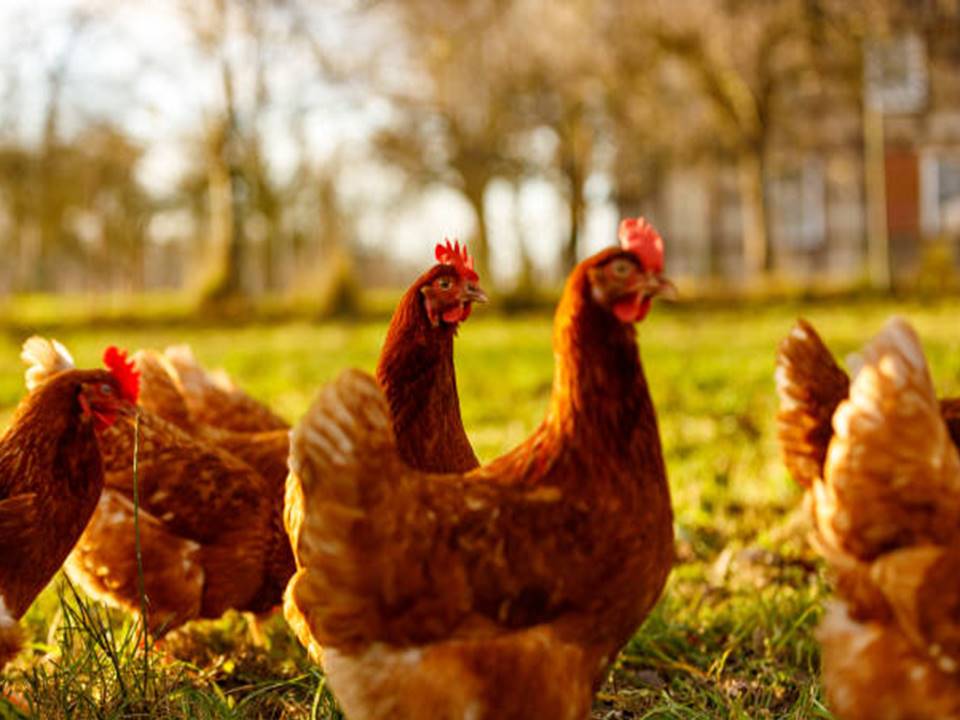
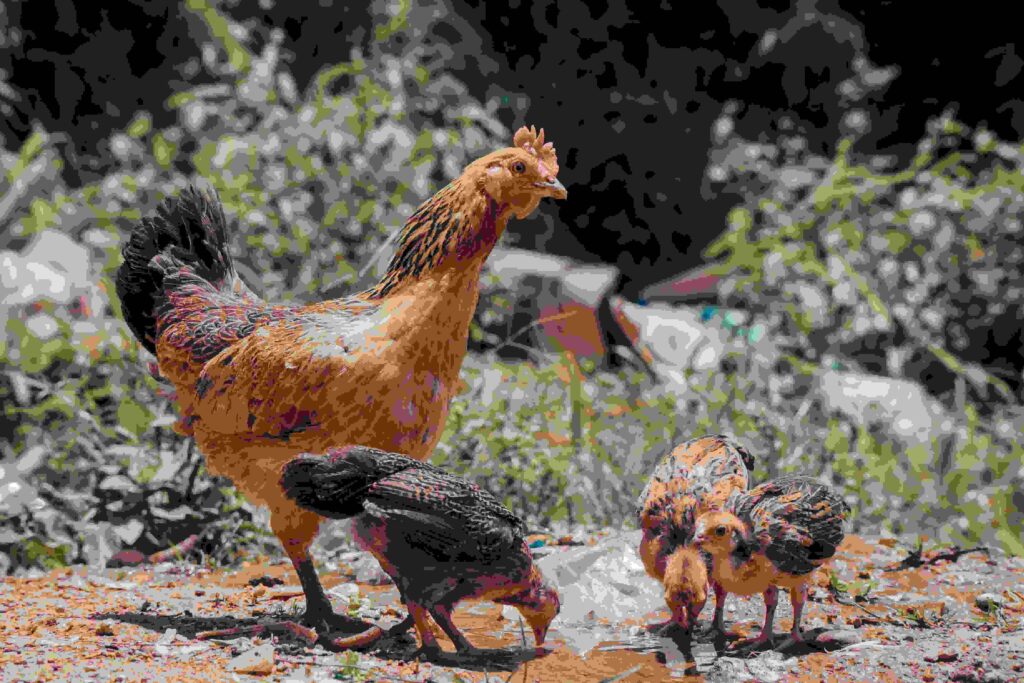
Pingback: Healthy breakfast ideas- Keep good your Heart for daily life
Pingback: How Much Protein Do You Need to Eat Daily? And How To Get It
Pingback: What's Good to Eat? Top Delicious,Healthy Food Choices Guide
Thank you for your sharing. I am worried that I lack creative ideas. It is your article that makes me full of hope. Thank you. But, I have a question, can you help me?